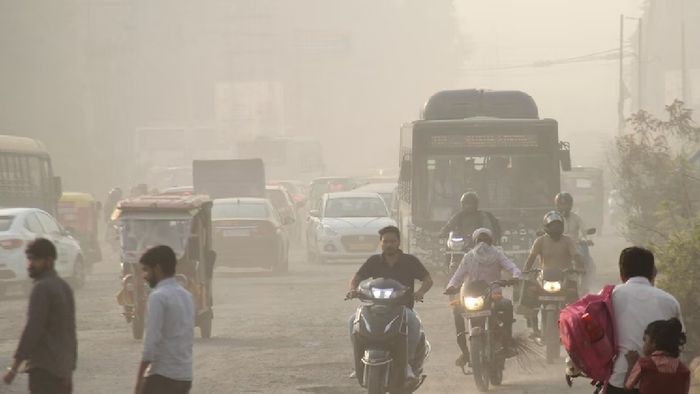Delhi’s air quality worsens to ‘severe’ levels as smog engulfs city
Delhi’s air quality continued to deteriorate on Tuesday, November 5, as pollution levels remained in the 'very poor' to 'severe' categories, according to data from the Central Pollution Control Board (CPCB). A dense layer of smog covered various parts of the capital, creating alarming conditions for public health and visibility.

- Nov 05, 2024,
- Updated Nov 05, 2024, 10:10 AM IST
Delhi’s air quality continued to deteriorate on Tuesday, November 5, as pollution levels remained in the 'very poor' to 'severe' categories, according to data from the Central Pollution Control Board (CPCB). A dense layer of smog covered various parts of the capital, creating alarming conditions for public health and visibility.
The city’s Air Quality Index (AQI) was recorded at a high of 384 around 8 a.m., indicating 'very poor' air quality. SAFAR India reported even higher readings in certain areas, where AQI levels exceeded 400 by Tuesday morning, pushing air quality into the 'severe' category. Among the worst-affected areas, Mundka recorded an AQI of 416, Vivek Vihar at 424, and Anand Vihar reached a hazardous 457, along with Ashok Vihar, New Moti Bagh, Rohini, and Dwarka Sector 8—all surpassing 400. These 'severe' AQI levels pose significant health risks, especially for vulnerable populations, as prolonged exposure to such pollution can lead to respiratory issues and aggravate existing conditions.
Other parts of Delhi also witnessed high pollution levels, with AQI readings at Pusa, RK Puram, ITO, Lodhi Road, and Narela hovering around the 'very poor' category, ranging between 343 and 396.
The Air Quality Index measures pollution in categories: 'poor' between 200-300, 'very poor' from 301-400, and 'severe' from 401-450. Any level above 450 is classified as 'severe plus,' indicating an emergency situation.
Amidst this health crisis, the Supreme Court expressed serious concerns on Monday regarding the enforcement of the firecracker ban in Delhi. A bench comprising Justices Abhay S Oka and Augustine George Masih questioned the Delhi government over the reported violations of the ban during Diwali celebrations. The bench directed the government to submit a detailed affidavit outlining measures implemented to address the pollution crisis and prevent the use of firecrackers.
Pointing to media reports about widespread violations of the ban, the Supreme Court emphasized the urgency of effective enforcement and demanded an explanation for the lack of compliance. The court’s inquiry comes at a critical time as Delhi’s pollution crisis continues to escalate, posing severe health risks and underscoring the need for decisive action against pollution sources in the city.